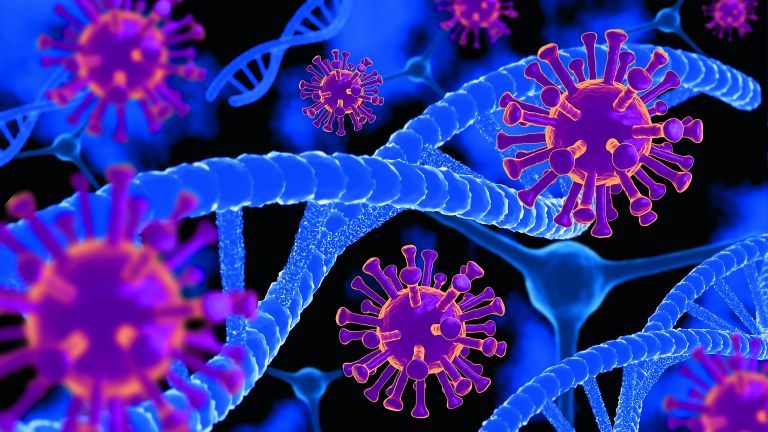colds, or ‘flu’, and allergies are all conditions that affect your respiratory system, which can make diagnosis difficult.
However, each disease has basic symptoms that distinguish it and can separate a cold from an allergy.
Cold and flu
A cold, as most of us call it, can be a respiratory infection caused by a virus or bacteria. Influenza is an infection by the influenza virus, however the condition we commonly call “flu”, without having identified the virus or other pathogen that causes it, can come from any other respiratory virus or bacteria.
As a general rule, the symptoms associated with influenza (flu virus infection) are more severe.
Both the common cold and other illnesses can lead to runny nose, stuffy nose, congestion, coughing and sore throat.
The flu can also cause a high fever that lasts for 3-4 days, along with headache, fatigue and general aches and pains. These symptoms are less common when you have a cold.
More information can be found here http://bitly.ws/x2Bt
Allergies
Allergies are not caused by a pathogen (virus or bacteria). Instead, it is the body’s immune system that reacts to a foreign body – an allergen. Allergens are innate substances for most people (food, dust, mites) but for allergic patients the immune system recognises them as a threat. If you have allergies and are inhaling substances such as pollen or pet dander, the immune cells in your nose and airways may overreact to these harmless substances.
The sensitive respiratory tissues may then swell and your nose may become stuffy or start to show symptoms of a runny nose.
Allergies can also cause itchy, watery eyes, which are not usually associated with a cold or flu.
Allergy symptoms usually last as long as you are exposed to the allergens, which can be up to about 6 weeks during the pollen blooming season in spring, summer or autumn.
Cold symptoms rarely last more than 2 weeks.
Most people with a cold or flu recover on their own without medical attention. But it is always a good idea to consult a healthcare provider if symptoms last longer than 10 days or if symptoms are not relieved by over-the-counter medication.
Cold – flu treatment
To treat a cold or flu, get plenty of rest and drink plenty of fluids. If you have the flu, analgesics such as aspirin, acetaminophen or ibuprofen can reduce fever or pain.
Treatment of allergies
Allergies can be treated with antihistamines or decongestants and avoiding exposure to the allergens that affect you. For recurrent and prolonged symptoms, consult your allergist and have the necessary tests done.
Allergies and Viruses
In general, allergic conditions are associated with an increased risk of viral infections, but the risks are influenced by the type of virus, the host and environmental factors. A recent study on asthma and viral infections showed that although asthma status was not associated with the risk of infection with rhinovirus or other viruses, children with asthma had a significantly higher risk of infection with the H1N1 influenza strain than non-asthmatic children. Other studies have reported an increased risk of H1N1 infection in children with allergic diseases. Asthma appears to be the most common allergic disease in patients with severe H1N1 infection leading to hospitalisation or even death.
Allergic diseases range from mild to severe and appear to increase a person’s susceptibility to various respiratory and non-respiratory microbial infections. It is necessary in this case to take into account the increased susceptibility to both severe and common infections as well as the underlying immune dysfunctions as a potential feature of allergy, rather than considering the infections as a transitory or secondary airway inflammation.
Current guidelines for asthma or other allergic conditions state that in the future they may need to address a wider range of management issues for infectious diseases among those patients suffering from allergies.
Differences between cold, flu, allergy
| SYMPTOMS | COLD | FLU | AIRBORNE ALLERGY |
| FEVER | RARE | USUALLY HIGH | NEVER |
| HEADACHE | UNCOMMON | COMMON | UNCOMMON |
| GENERAL BODY PAIN | MILD | USUALLY YES AT VARIOUS POINTS | NEVER |
| FATIGUE, WEAKNESS | SOME TIMES | MAY LAST UP TO 3 WEEKS | SOME TIMES |
| EXCESSIVE EXHAUSTION | NEVER | USUALLY IN THE BEGINNING OF THE FLU | NEVER |
| BLOATING, RUNNY NOSE | COMMON | SOME TIMES | COMMON |
| SNEEZING | COMMON | COMMON | COMMON |
| DRY THROAT | COMMON | COMMON | COMMON |
| COUGH | COMMON | COMMON, CAN GET SERIOUS. | COMMON |
| CHEST PAIN | MILD | COMMON | RARE EXCEPT IN CASES WITH ASTHMA |
| THERAPY |
Get plenty of rest. Stay hydrated. (Drink plenty of fluids.) Decongestants. Aspirin (aged 18 years and over), acetaminophen or ibuprofen for aches and pains
|
Get plenty of rest. Stay hydrated. Aspirin (aged 18 years and over), acetaminophen or ibuprofen for aches, pains and fever Antiviral medications (see your doctor)
|
Avoid allergens (things you are allergic to) Antihistamines Nasal steroids Decongestants
|
| PREVENTION |
Wash your hands often. Avoid close contact with anyone who has a cold. |
Get the flu vaccine every year. Wash your hands often. Avoid close contact with anyone who has flu.
|
Avoid allergens such as pollen, house dust mites, mould, pet dander, cockroaches.
|
Call us for an appointment or questions about molecular diagnostic tests for viruses
24 hours a day: 693 248 8458 – Landline: 211-4025423
